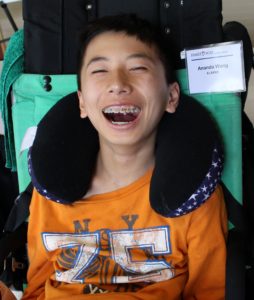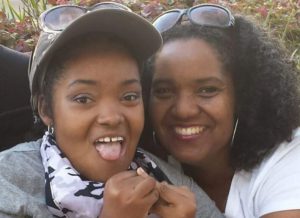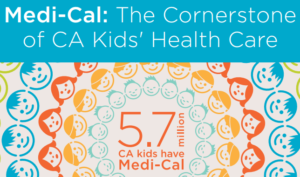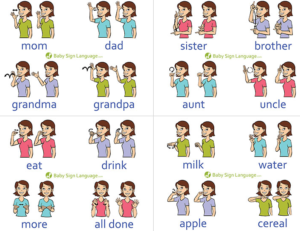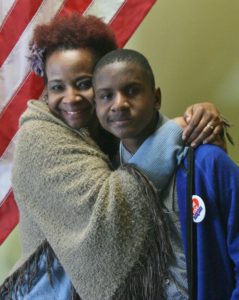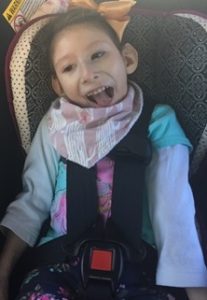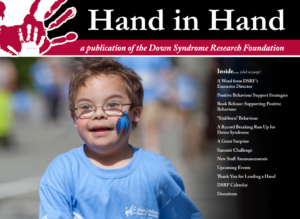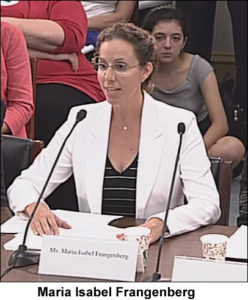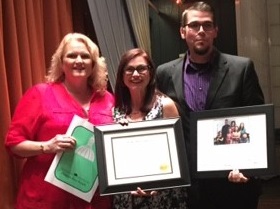
19-year-old Lauren Brady of Whittier is a pretty typical teenager. She loves Justin Bieber, stayed up until 3 a.m. at her high school grad night, and, according to her mom, Sherri, has a “certain standard” when it comes to looking her best. Diagnosed at age 3 with Rett Syndrome, a rare neurological disorder that affects brain development and causes coordination and speech impediments, Lauren requires a wheelchair to get around, can’t speak, and needs a feeding tube. There are many moving parts to her comprehensive medical home that Sherri, who serves as Lauren’s primary caregiver, works with, often switching between ‘mom’ and ‘educator/advocate’ as Rett is still fairly foreign to many. Sherri’s goal is to stack Lauren’s care team with professionals who don’t view Rett as a hindrance or impossibility, but who are willing to learn from and work with the two of them.
What are the components of Lauren’s current medical home?
First and foremost, a lot of my knowledge comes from other families of children and adults with Rett Syndrome. These families are going to be your best resource, and they’re #1 on Lauren’s team. Your own family and friends can help, but they have their limitations since they’re not doing what other parents (of children with disabilities) are doing.
As far as doctors, Lauren is seen at the Children’s Hospital Los Angeles Rett Syndrome Clinic—our touchdown place for all things Rett. It’s great to have a team that actually knows what we need. To this very day, I still go to appointments where no one’s heard of Rett. For example, I had to take Lauren to the emergency room the other night, and here I am trying to manage her care and pain while handing out brochures on Rett all at the same time. I’m often wearing two hats at once.
Lauren also sees a GI specialist and neurologist on a regular basis—those have been her mainstays. She’s always had a pediatrician, but we only go if she has a simple cold or I need paperwork for school.
At the Adult Care Transition (ACT) Clinic Lauren attends, they focus on individuals with pediatric disorders who are becoming adults and need more specialized care. She’s recently started seeing a meds peds doctor here, or a practitioner who’s trained in general medicine and pediatrics. I think it’s going to work out great. The few people who tend to know a lot about Rett are pediatricians, and the chances of a doctor seeing an adult patient with Rett drops drastically. Even as they get older, a lot of their care is still more kid-like and kid-focused, but you still have to think about all the adult things you weren’t thinking about before. There’s been a few female adult issues that have come up, and it’s an area where Lauren was starting to have some concerns. It’s great to have people around at the ACT Clinic that are more trained in this area and know how to troubleshoot and identify solutions.
When she was younger, Lauren had some vision issues and needed to wear glasses. While that issue kind of resolved itself, I still take her to the eye doctor here and there, just to make sure. She also goes to the dentist twice a year. The very first dentist I took her to only looked at whatever teeth happened to be showing and said, “she looks good to me!” Needless to say, we never went back to her. I was able to find a doctor who specializes in children with special needs through other families, and we’ve been going to him ever sense. When Lauren needed a root canal, I was lucky enough to be able to take her to Children’s Hospital Los Angeles. But, if we fast forward three years and that ever happened again, I’m not sure where I’d take her. This is something I’m hoping the med peds doctor will help us coordinate.
Lauren is fairly active with physical therapy, and her current therapist sees the growth that’s occurred in the past year. She’s open to trying new things with Lauren, and Lauren is gaining some skills back. While she isn’t able to walk independently, she can stand, bear weight, and walk with assistance—a huge help when it comes to me transporting her. Do I hope she’ll walk independently? Yes. Will I ever give up on preparing her body for that? No. With all the research that’s going on, something could come down the pipe tomorrow, and I want her body to be at its most optimal ability.
For Lauren and all girls with Rett, it takes a special kind of occupational therapist who is willing to think outside the box. There seems to be an “all or nothing mentality:” if you can’t brush your teeth or comb your hair independently, you’re not going to benefit from therapy. However, some people can do these things if you make adaptations. Pretty much everything that was adapted for Lauren during K-12 was adapted by me, and I think a lot of it could work for other girls.
How do you work with Lauren’s team to coordinate her care?
We’ve been trying to figure out why she’s been having intermittent GI issues and pain for over a year. Just when we think we’ve got it under control, it comes back. Although it seems to be a GI issue, her neurologist and med peds doctor have both had some helpful input and suggestions. I try to keep all of her doctors aware of what’s going on, and I put on my basic care coordinator hat to make sure everyone is up to speed with copies of her tests. It’s hard and it’s a lot, but I feel like it’s the only way we’re going to get answers and I’m determined to get to the bottom of the issue.
What does a typical day look like for Lauren?
Since Lauren needs assistance with all her living skills, the day starts with a transition from bed to bathroom. Either before or after this, I give her a G tube feed. Next, we move on to dressing, hair, jewelry, and makeup. Lauren has certain standards, and it’s important to me that she look her best—she has enough challenges already. I want to help her put her best foot forward and for people to see her for who she is.
On weekdays, she’ll typically go to her transition program, which is through the Whittier School District. Their end goal is for everyone to have a job, so they go out into the community and talk about things like money and spending. I know Lauren understands money, but because of her physical limitations, she’ll always need assistance since she can’t take bills out of her bag herself. I’m glad she’s able to have this experience since she loves the freedom of going places without me—she’s a very typical teen in that way!
Lauren has an outside augmentative and alternative communication (AAC) person that comes in to assist her with alternative ways of communication. This person also helps train teachers and staff to support Lauren in more fully participating in things from a communication standpoint.
On the weekends, we usually hang out with friends, go to Disneyland, a pool party, a picnic, the movies, or the mall. We also go to the Rett Clinic once a month to volunteer, and they learn a lot from Lauren being there.
How were you able to qualify to be Lauren’s paid caregiver through In Home Supportive Services (IHSS), and what obstacles do families face as they’re trying to qualify?
Many families are prevented from tapping into beneficial resources because they don’t qualify financially. I understand the need for income guidelines, but they’re not always reasonable or fair. In most cases, they really don’t take into consideration the added expense that comes with having a child with special needs.
IHSS has an income component since the child must be receiving Medi-Cal in order to qualify. Because of our particular situation, Lauren qualified for Supplemental Security Income as a child and therefore Medi-Cal, but that’s not the case for most. Luckily, some children are able to get Medi-Cal through the Institutional Deeming program at Regional Centers, but lots of service coordinators don’t bother to tell families about either program or the child doesn’t receive the needed services from Regional Center to qualify.
Those that qualify for IHSS are given a certain amount of hours based on their need so that they can hire caregivers. It’s harder for children to qualify because social workers will often argue that we (parents) would need to care for our children anyway. The key is showing that the level of care is greater than a typical child. That may sound simple and obvious, but it is often quite a challenge. If it is proven, as in Lauren’s case, that the individual not only has needs in the designated areas but also has the physical ability to put themselves in harms way, then they qualify for Protective Supervision and qualify for the maximum number of hours (283/month).
IHSS has often been the target of budget cuts, and they have threatened to no longer allow parents to be caregivers. Luckily this hasn’t happened, and as of this year the amount earned has increased due to the rise in minimum wage and the law requiring caregivers to qualify for overtime.
There are still lots of problems with the program, but I am extremely grateful for the fact that it exists in any form because it’s my understanding that most states don’t have anything similar, and the ones that do usually don’t allow parents to be caregivers.
As Lauren’s primary caregiver, what kind of self-care do you practice to ensure that you’re at your best for her?
My friends sometimes push me to take time away from Lauren, but I really enjoy the time I spend with her! I’m extremely lucky in a lot of different ways: since she doesn’t have many health issues, it allows us to do social things. I know so many families that are in and out of the hospital because their child is having hundreds of seizures a day. If Lauren’s life and care were more hectic, I may need a break from that. The older she gets, the more I enjoy hanging out with her as well. We’re not going to see Barney anymore—we’re going to concerts and it’s somebody I want to see too! Also, a lot of people don’t understand that it’s actually not relaxing for me to be away from her because then I worry.
What advice would you give to a family who just received a diagnosis where they know their child will require complex care?
Follow your gut—you know your child best. Don’t take “no” or “I don’t know” for an answer. Surround yourself with a team. My goal is to always find people who are willing to learn, acknowledge that I do know what I’m talking about, and work with us. I don’t want people to say, “well, she has Rett, so we can’t do XYZ.”
